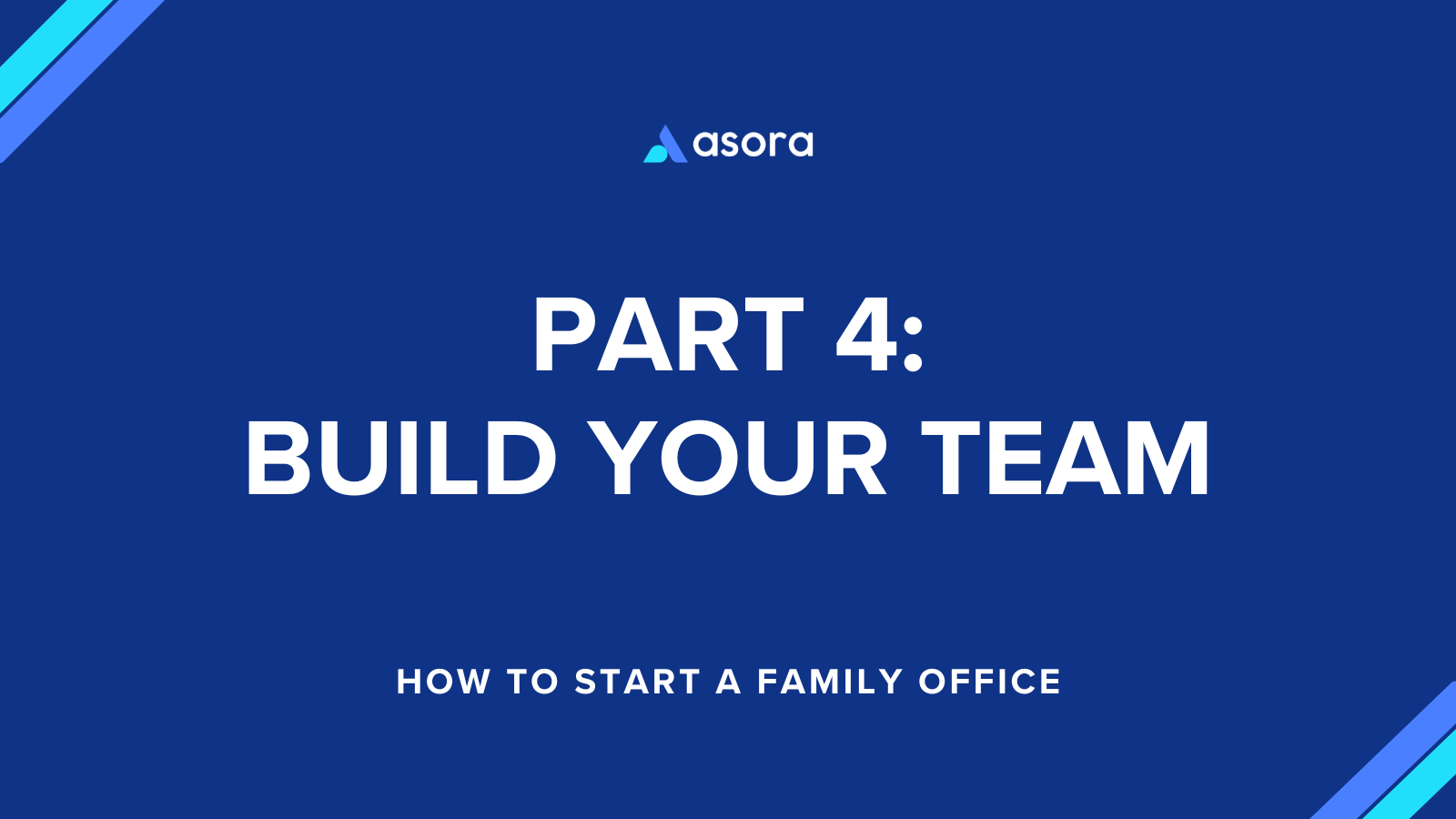Automate your family office
Schedule DemoHeading 1
Heading 2
Heading 3
Heading 4
Heading 5
Heading 6
Lorem ipsum dolor sit amet, consectetur adipiscing elit, sed do eiusmod tempor incididunt ut labore et dolore magna aliqua. Ut enim ad minim veniam, quis nostrud exercitation ullamco laboris nisi ut aliquip ex ea commodo consequat. Duis aute irure dolor in reprehenderit in voluptate velit esse cillum dolore eu fugiat nulla pariatur.
Block quote
Ordered list
- Item 1
- Item 2
- Item 3
Unordered list
- Item A
- Item B
- Item C
Bold text
Emphasis
Superscript
Subscript
In the realm of business, success hinges on many factors, and one of the most crucial is undoubtedly the talent within an organisation. This principle holds true for family office staff as well. A family office requires a skilled and diverse team to navigate the complexities of wealth management effectively.
In the fourth part of our How to Start a Family Office guide, we will explore the significance of assembling the right talent within a family office and how it influences long-term success.
Understanding Your Family Office's Staffing Needs
The family office staffing needs are contingent upon several factors, including the office's size, the complexity of its operations, and the specific services it plans to offer. While every family office is unique, there are a few key roles that commonly form the foundation of a successful team:
CEO or Managing Director: The leadership role within a family office is crucial for providing strategic direction, overseeing operations, and acting as a liaison between the family and the office. The CEO or Managing Director should possess strong financial acumen, leadership skills, and the ability to navigate family dynamics effectively.
Investment Manager and/or Analysts: Wealth preservation and growth are at the heart of a family office's responsibilities. Having an experienced investment manager and a team of skilled analysts helps identify lucrative opportunities, conduct in-depth research, and make informed investment decisions aligned with the family's goals and risk appetite.
Accountants: Managing complex financial affairs necessitates the expertise of qualified accountants. These professionals handle financial reporting, tax planning, and compliance matters, ensuring the family's financial operations remain transparent, efficient, and compliant with relevant regulations.
Administrative Support: Behind the scenes, administrative professionals play a vital role in coordinating schedules, managing documentation, and facilitating smooth operations. They handle day-to-day tasks, enabling other team members to focus on their core responsibilities.
Tailoring the Team to Fit the Family Office
To ensure the right fit between the family office's staffing needs and the services it plans to offer, a comprehensive evaluation of the family's assets, objectives, and budget is imperative. A larger and more complex family office may require a more extensive team with specialised expertise in areas such as estate planning, philanthropy, or legal services. On the other hand, a smaller family office might have a leaner team, with members wearing multiple hats and collaborating closely.
The Significance of Experience and Cultural Alignment
When choosing people to join a family office team, it's important to look beyond just their job skills. It's also crucial to consider if they have the right experience and if they fit in well with the team's culture. Experience in managing money and understanding complex financial landscapes is important. Cultural alignment ensures that team members share the same values, work ethic, and commitment to serving the family's best interests.
Fostering a Collaborative and Continuous Learning Environment
Building a successful family office team goes beyond choosing the right people at the very beginning. Continuous learning, professional development, and fostering a collaborative environment are critical components of long-term success. By encouraging knowledge sharing, providing growth opportunities, and keeping up with industry developments, the team will be ready to handle new challenges and make the most of emerging opportunities.
Finding the Right Staff for Your Family Office
The success of a family office relies heavily on the calibre of talent within its team. As mentioned in the Agreus Group and KPMG Private Enterprise Global Family Office Compensation Benchmark report,
"Loyalty and longevity are vital to the success of Family Offices, so it is important to recruit correctly." By carefully considering the unique staffing needs based on the office's size, complexity, and planned services, and selecting individuals with the right experience and cultural fit, a family office can position itself for long-term success. It is through the collective expertise, strategic vision, and collaborative efforts of a talented team that a family office can navigate the intricate landscape of wealth management and ensure the preservation and growth of the family's assets for generations to come.












